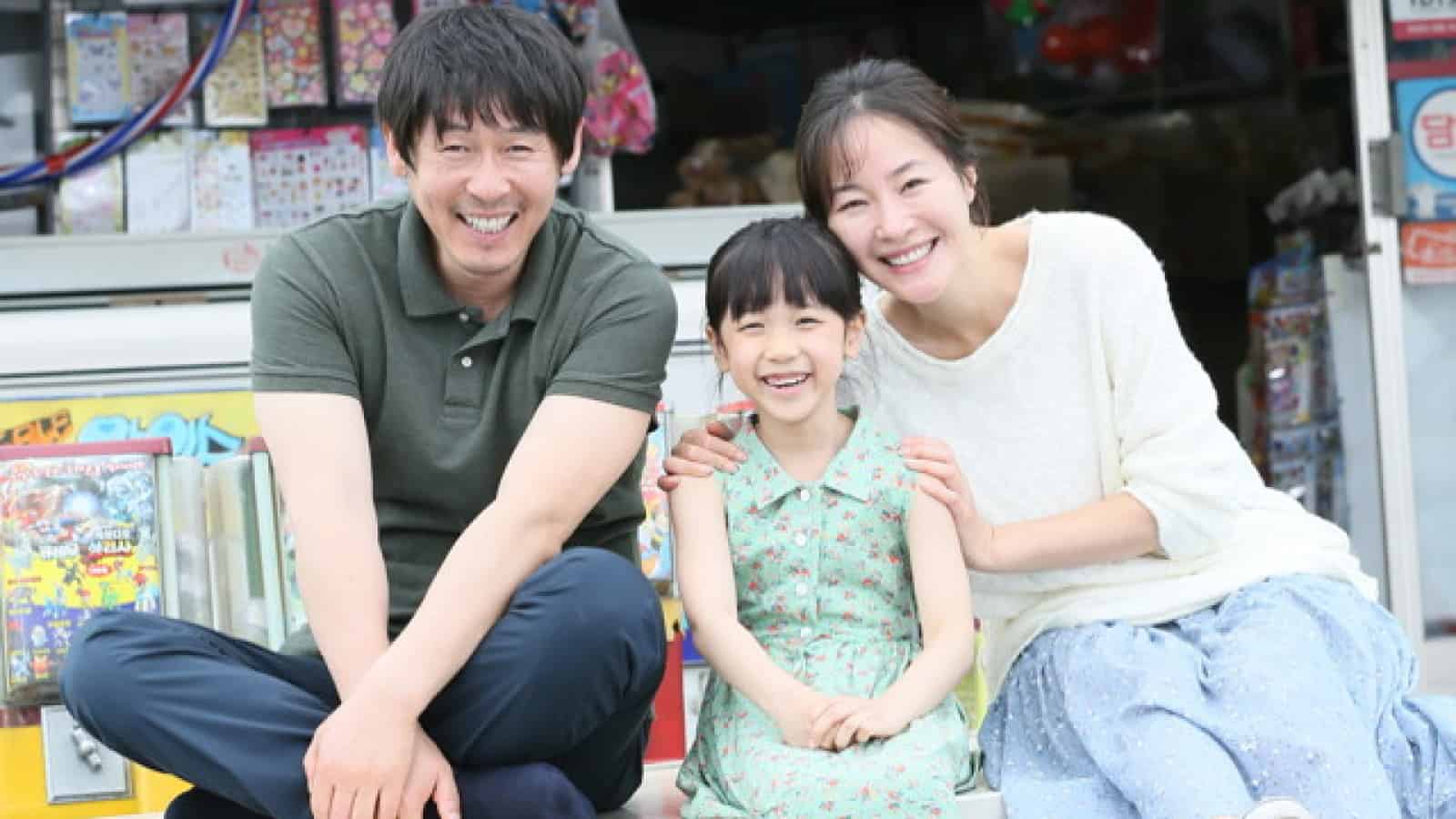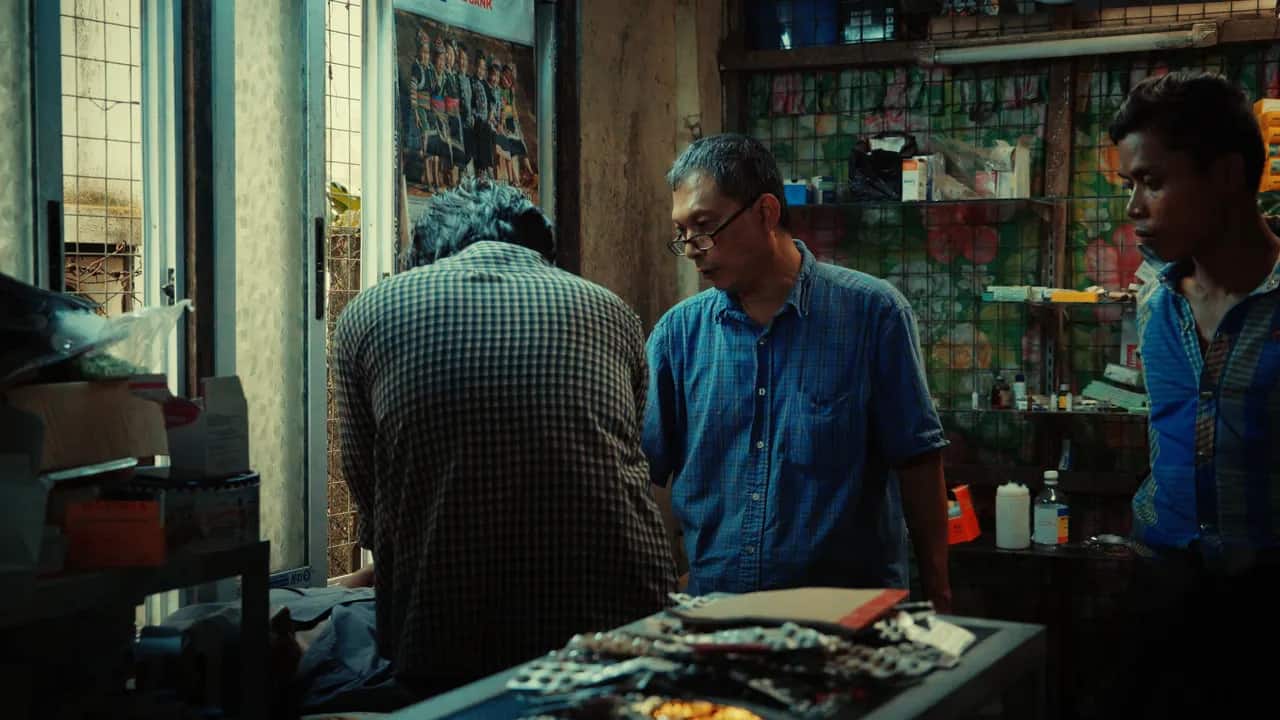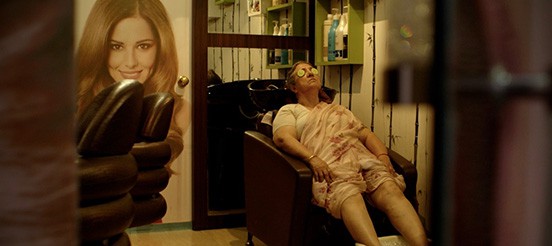Back in 2019, Mari Asato's “Under Your Bed” made a splash in the festival circuit, with its extreme approach on the erotic thriller. Now, another adaptation of Kei Ohishi's homonymous novel comes to the fore, this time from Korea, although the director is a familiar Japanese, Sabu, in his first outing in the particular country.
*The review was based on a version of the film before post-production.
Ji-hoon is a young man who has been ignored by everyone since his schooldays, to the point that he decided to stay in the background, roaming his own world with a camera shooting from “behind the lines”. The only person who actually interacted with him, even calling him by his name, was the girl he was in love with in college, Ye-eun, although their one date ended up being completely unremarkable. For her at least, since Ji-hoon never actually forgot about her, even if their paths were separated after college. When he tracks her again years later, he finds out that she is married to a psychiatrist, Hyung-oh. However, completely undeterred, he buys an aquarium store close to her apartment, in order to be close to her. When she finally decides to buy one, Ji-hoon takes the opportunity and installs cameras all over her apartment. To his surprise, however, he finds out that her husband is abusing her constantly, with her getting beaten for the smallest things, at least when he is not forcing her into sex. Ji-hoon, however, is not exactly a man of action. At the same time, his only regular customer is a mysterious young man with the same name as him.
The original material is, undoubtedly, provocative (even disturbing one could say), with the whole concept of a woman forced into sex by her abusive husband while the man who actually loves her is practically stalking her, occasionally under the bed the “deed” is happening, without trying to save her, proving the point in the most eloquent fashion. Sabu, however, manages to handle the whole thing in a way that is quite intriguing, in a style that frequently reminds of Kim Ki-duk, but also includes the (Japanese) sense of humor Sabu always includes in his movies.
Check also this article
In that fashion, the film starts in genuine exploitation fashion, by presenting Ye-eun's treatment on the hands of her husband in an intense combination of sex, violence, and voyeurism on the part of Ji-hoon (The Kim Ki-duk element mentioned before). And while this aspect does not leave completely, as the movie progresses, Sabu focuses more on the reasons behind the actions of the two men, with the main focus being on Ji-hoon, but also allocating some time to Hyung-oh. The story of the former emerges as quite interesting, as the reasons he became a watcher of his whole life practically are presented as both social and psychological, without, however, also providing a justification for his (in)action. The same, more or less, applies to Hyung-oh, who is a violent man who badmouths his patients and beats his wife, not to mention he does not even let her go see her sick father, but is also an individual who is utterly dependent to her, not to mention lonely throughout his life. Again, this is not presented as justification, but more as an explanation, as the psychiatrist essentially remains the villain throughout the movie.
Lastly, Ye-eun is equally interestingly presented with the two men, through her victimization and her inability to escape, which is both practical and psychological. As a sum of all three, the main comment that seems to derive is that people are slaves to their mentality, and their effort to change borders on the impossible, until, though, it doesn't. At the same time, and in a rather pointed remark, love here is presented as a sentiment that essentially condemns people in either misery or violence, or frequently both.
This last aspect is the catalyst that changes the dynamics as the story progresses, with the movie eventually turning into a crime thriller. This approach also applies to the second Ji-hoon, the young one, who is proven to be something completely different, essentially in the same path with the three protagonists. One could say that he also presents the exact opposite persona of the protagonist Ji-hoon, as a young man who always reacted to the people and his environment. Kim Soo-oh in the role is excellent, emitting mystery and danger with every word and every move.
Although the story is intricate, I felt that the ending could have been handled a bit differently in its presentation, since its melodramatic approach ends being cliched, in an element probably included to appeal to the Korean audience. Furthermore, this is the only part in the movie that is lagging, with the editing not helping in that regard, although the truth is that this aspect could change in post-production. On the other hand, the rest of the effort in the particular component is quite good, equally in terms of pace, the presentation of the flashbacks and Ji-hoon's imagination.
Lee Ji-hoon as Ji-hoon is quite convincing in his voyeuristic inaction and Shin Soo-hang great as the villain of the story. Lee Yun-u had a very difficult role, of appearing either the victim of violence or a sex object for the most time, but she is also convincing in the particular role. Regarding acting, there are some scenes that stand out due to the humor implemented in them, with a dance and a pull of the legs being definitely among those that will stay in mind, even despite their briefly.
Considering that the movie was still in post production when this review was written, I will refrain from commenting on the production values, with the exception of the framing, which is evidently exquisite within the overall voyeuristic approach.
“Under Your Bed” is a (thought) provoking movie that manages to combine eroticism, violence, crime and thriller elements in a package that still lingers between the art house and the mainstream, in an overall work that is bound to make its viewers think and feel a number of things.















